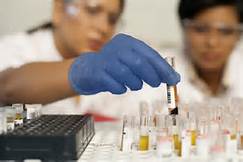|
|
Facts
Duration: 1 semester (6 weeks)
Period: Spring (2) Semester
Credits: 3 ECTS
Contact Hours: 24
Hours: 108
|
Main Objectives
The purpose of the module is to help students acquire deep and systematic knowledge in the molecular mechanisms of health and pathologies by means of an interdisciplinary approach. The course concerns biochemical and genetic diagnosis methods, elementary bioinformatics for the genome analysis and functional annotation, as well as experimental techniques for biomedical research.
Learning Outcomes
As a result of the course, a student must:
- know: basic principle of gene regulation, fundamental and applied principles of molecular diagnosis and therapy.
- be able to: form a system of concepts and terms that make up the conceptual framework and the working vocabulary of the molecular medicine;
- master: practical skills relevant to biomedical experimental research and laboratory tests along with basic principles of treatment. Critical evaluation of scientific publications (hypothesis, problem definition, research approach, interpretation of results, conclusions, limitations).
Professor
Starikova Elena
Course annotation
Molecular basis of health and pathologies (3 European Credits)
Taught by: Prof. Starikova Elena
The purpose of the module is to help students acquire deep and systematic knowledge in the molecular mechanisms of health and pathologies by means of an interdisciplinary approach. The course concerns biochemical and genetic diagnosis methods, elementary bioinformatics for the genome analysis and functional annotation, as well as experimental techniques for biomedical research.
The module covers the following topics:
- Molecular medicine – background, methods and techniques.
- Immune system, inflammation, molecular mechanisms of metabolic disorders.
- Monogene diseases, metabolic and mitochondrial disorders.
- Multifactor disease (diabetes).
- Molecular mechanisms of tumours grow. Biomarkers and other early stage diagnosis techniques.
- The main features of the molecular targeted therapy, clinical applications and experimental researches.
- Experimental (biological models based) and bioinformatics methods.
Learning objectives
As a result of the course, a student must:
- know: basic principle of gene regulation, fundamental and applied principles of molecular diagnosis and therapy.
- be able to: form a system of concepts and terms that make up the conceptual framework and the working vocabulary of the molecular medicine;
- master: practical skills relevant to biomedical experimental research and laboratory tests along with basic principles of treatment. Critical evaluation of scientific publications (hypothesis, problem definition, research approach, interpretation of results, conclusions, limitations).
Content of the module
The module provides an essential information concerning the current state of experimental science and practical application of the molecular medicine including: the progress of research, laboratory equipment for the molecular medicine, bioinformatics and gene datasets, modelling with biological and numerical models both in the molecular medicine, biochemical, clinical and epidemiological aspects and factors of gene-related diseases.
Overview of tasks and lectures
The module is scheduled for the second semester. The length of the module is 6 weeks (1 two-hour lectures, 7 two-hour seminars and project works totalling 8 hours). Students are given 84 hours for individual studying of material.
Topics of lectures:
1. Introduction. The molecular basis of medicine. History and previous fundamental studies. Methods of molecular medicine.
Preliminary topics of seminars:
- Basic genetic mechanisms. Experimental genetic manipulations. The software tools for gene analysis and functional annotation, working with gene databases.
- From DNA to protein. Control of gene expression. Vectors construction. Biological models.
- Cell signaling. Methods of evaluation.
- Cellular transport mechanisms. Cell compartments. Cellular bioenergetics.
- The innate and adaptive immune systems. Role of the immune system in prevention of diseases and diseases development and progression.
- Inflammation. Methods of modelling and evaluation.
- Molecular mechanisms of metabolic disorders.
- The molecular basis and pathophysiology of monogene diseases. Hydrocarbonate metabolic disorders, storage diseases. Mechanisms of mitochondrial genome damage and related diseases
- The molecular basis and pathophysiology of multifactor diseases. Diabetes as a multifactor disease. The role of gene and external factors (such as nutrition, life style, and comorbid pathologies) in formation of the different types of diabetes.
- Cancerogenesis. The molecular basis and pathophysiology. Recent methods for early stage diagnosis, prevention, and gene therapy.
- Stem cells and tissue renewal.
- Molecular targets and monoclonal antibodies. The main features of the molecular targeted therapy, clinical applications and experimental researches. Design of research.
Preliminary topics of assignments:
- Experimental techniques for tumor's markers identification.
- Transcriptional factor p53. Role of mutated forms in cancer progression.
- Stress activated kinases. Methods of evaluation, role in diseases progression.
- The risk factors of multifactors disease.
- Cell cycle checkpoints. Responsible molecules, methods of experimental manipulations.
Teaching format
Structure
The module is scheduled for the second semester. The total complexity of the course is 3 credits / 108 hours, including 24 class hours. There are 6 weeks (1 lectures, 7 seminar and project work) for the course units. Lectures and seminars are conducted in multimedia classroom, equipped with technical means for video conferencing, as well as presentation and interactive equipment.
Grading
The form of final assessment is an exam. The exam consists of an overall grade for the results of assignments included in the mandatory minimum, testing of the practical skills and knowledge of the program and an oral exam on theory.
.png)
